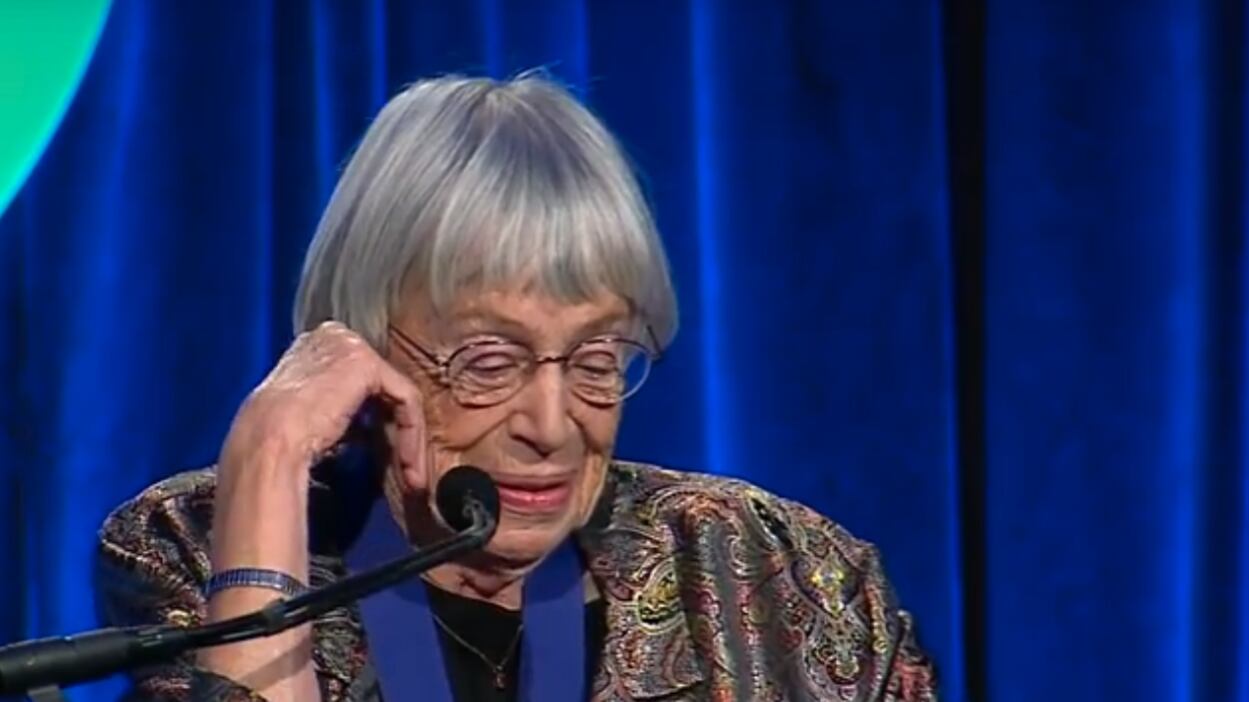Legendary author Ursula Le Guin has died at her Portland home, the New York Times has reported. She was 88 years old. Her son confirmed the death to the Times.
She was best known for her immensely popular Earthsea series for young adults, and for inventive fantasy and science fiction books with an occasional feminist—or at the very least anti-masculinist—bent like the Left Hand of Darkness, about a planet in which gender is not fixed.
Even as she called her introduction to feminism "slow and late," Le Guin is considered a pioneer as a strong female voice in an arena of literature often dominated by male voices and expressly macho perspectives.
She was a prolific writer, the author of more than 20 novels and seven collections of essays, not to mention 13 books for children.
Though she was born in California in 1929, Le Guin's home has been Portland since 1958, when her husband took a job teaching at Portland State. And she did not leave her hometown untouched by her often astonishingly inventive fiction. In 1971's The Lathe of Heaven, she imagines a 21st-century Portland in which its population has swelled to unmanageable proportions and dreams must be managed because they become reality. When the main character is instructed to dream of a world without racism, he awakens to find that everyone's skin has become gray.
Late in life Le Guin became an outspoken public commentator, especially on the subjct of public lands and deleterious effects of the internet on attention spans—asking readers to take the time to read slowly and carefully, as in her new collection Late in the Day. As the Bundy family occupied the federal refuge in Malheur county, Le Guin took the Oregonian harshly to task for a headline suggesting their goal was to free, rather than "hold hostage" the public lands.
In 2014, she received a medal for Distinguished Contribution to American Letters by the National Book Foundation. At her acceptance, after bemoaning that the award was previously denied to many in the science-fiction and fantasy worlds in favor of "realism"—a word she uttered with obvious disdain—Le Guin issued a stirring statement in support of artistic freedom in the case of increasing corporatism in the publishing world.
"Books are not a commodity," she said to applause.
Le Guin's reputation was as a clear-thinking lover of story whose form and integrity was reponsibly attended to, and language that was carefully considered—a major figure not just in science fiction and fantasy but in literature herself. Her standing in arts and letters was so well assured that in 2016, Le Guin was enshrined in the Library of America—an honor received by precious few living novelists except those with the stature of Saul Bellow, Eudora Welty and Philip Roth.
No cause of death was given, but according to the Times she had been in ill health.
Arwen Curry, a PBS and HBO documentarian and lifelong fan of Le Guin's, has been at work on a Le Guin documentary called the Worlds of Ursula Le Guin since 2008, raising funds for its release via Kickstarter in 2016.
